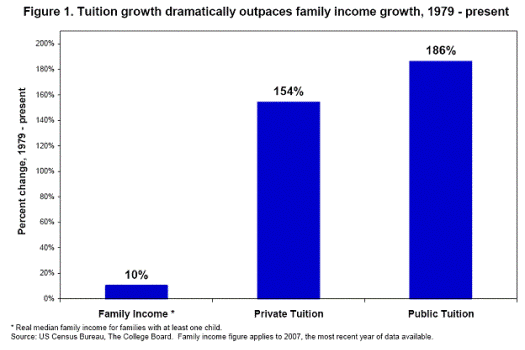Master’s degree programs in counseling are designed for licensed professionals who want to pursue advanced study in psychology and counseling. These programs cover a wide range of disciplines which will prepare graduates for challenging careers. But how do you know what program is the best fit for you and what criteria should you consider when selecting a school?
When evaluating graduate programs in counseling, it is important to know what your goals are and whether a school will meet your specific requirements. With tuition rising and state funding shrinking, you do not want to enroll in a program only to find that the education is of little value. The criteria outlined below will help you select a school and degree program which meets your unique needs.
Getting Started
With the first decision already made (choosing graduate study!), it’s time to start researching schools. This process will seem very familiar to what you did when selecting your undergraduate institution. Thorough research and asking the right questions before committing to a school will help ensure a good fit. Once you have compiled a list of potential colleges and universities, answering the following questions will help narrow your search:
- What schools offer degree programs in your area of specialty?
- Are the schools accredited and nationally ranked. And if so, by whom?
- Do the schools offer online courses?
- What funding options are available, e.g., scholarships, grants, and financial aid?
Once you’ve considered these questions, your list should hopefully be down to a manageable number. Now it’s time to really delve into more in-depth and comparative research about each program’s offerings.
Accreditation
Accreditation is an extremely important part of choosing a quality college or university. You would be at a major disadvantage if you had a degree from a non-accredited school. The reason being that accreditation is a stamp of approval from a recognized United States based agency. These agencies will routinely review the school’s coursework, teachers, and facilities. This ensures that schools are compliant with federal standards.
Accreditation carries a lot of weight with both employers and other institutions, in case you ever decide to transfer academic credits to another program. To find out if a school is accredited by a regionally or nationally recognized agency, visit the sites below:
National Agencies
- Accrediting Council for Independent Colleges and Schools
- Accrediting Commission of Career Schools and Colleges of Technology
- Accrediting Council for Continuing Education and Training
- Council on Occupational Education
- Distance Education and Training Council
Regional Agencies
- Middle States Association of Colleges and Schools, Commission on Higher Education (MSACHE)
- New England Association of Schools and Colleges (NEASC)
- North Central Association of Colleges and Schools (NCACIEH)
- Northwest Commission on Colleges and Universities (NWCCU)
- Southern Association of Colleges and Schools (SACS)
- Western Association of Schools and Colleges (WASC)
National Rankings
U.S. News analyzes more than 1,200 graduate programs each year to provide the top program rankings. Graduate school rankings are categorized by discipline and analyze the following data:

- Admissions
- Academics
- Student Body
- Cost
- Career and Salary Statistics
- Notable Alumni
Check to see if the schools on your list made the cut. However, don’t weigh your decision too heavily on a single ranking as these publications do not determine whether a school is going to be a good “fit” for you. Many factors contribute to the success of a school. To choose a college that truly suits your interests, conduct a thorough and comprehensive research.
Online Programs
Many graduate schools now offer online degrees in a range of disciplines. Counseling programs have especially experienced a dramatic rise in the number of online courses. If flexibility is important, distance learning should be part of your selection criteria. Below are just a few of the many benefits of enrolling in an online program:
- Convenience: You might not live near a school that offers your intended major or area of specialty. Online schools offer numerous degree programs in almost every counseling field that can be pursued entirely from home. Attending classes online also eliminates commuting time.
- Personalized Education: Online programs allow students to study at their desired time and pace. You can personalize your schedule to suit your learning style.
- Cost: With tuition rising, students are looking for ways to save money. Online schools are often less expensive than campus-based colleges and universities. You can save money on transportation and other school expenses. Notice in the chart below the increase in college and tuition fees in today’s economy:

If you’re looking for a flexible, more affordable way to earn your master’s degree, an online education might be part of your selection criteria. Some programs follow a hybrid model that combines online instruction with a face-to-face teaching environment. This way, you get the best of both methods of study.
Area of Specialty
Selection criteria should also include whether a school offers programs in your area of specialty. career paths. Below is a list of different counseling fields. If you’re interested in pursuing a master’s degree in one of these fields, check to see if you the school(s) on your list offer them:
Specialized Fields in Counseling
- Career Counseling
- Clinical Psychology
- Child Psychology
- Community Psychology
- Counseling Psychology
- General Psychology
- Health & Wellness Psychology
- Leadership Coaching Psychology
- Mental Health Psychology
- Sports Psychology
- Educational Psychology
- Guidance & Counseling
- School Counseling
- School Psychology
- Rehabilitation Counseling
- Geriatric Counseling
There are more specialty areas in which counselors operate. By searching online and reviewing the list of accredited schools below, you’ll find a program that meets your career and academic goals.

